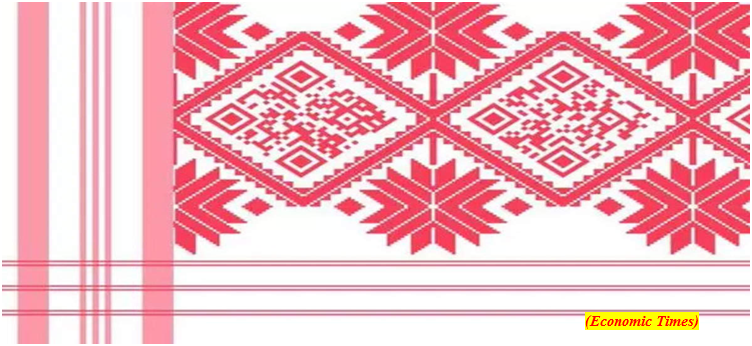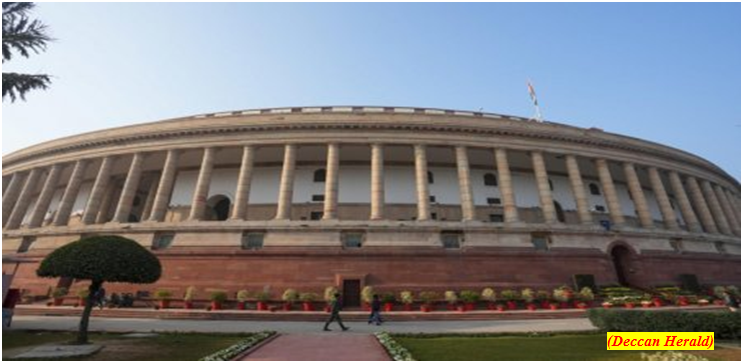Assams Gamosa, Telanganas TandurRedgram, Ladakhs apricot get GI tag (GS Paper 3, Economy)

Why in news?
- Recently, the government has granted Geographical Indications (GI) tag to various products, including Gamosa of Assam, TandurRedgram of Telangana, and an apricot variety of Ladakh.
- The total number of GI has reached to 432.
- Famous Gamosa of Assam, TandurRedgram of Telangana, RaktseyKarpo Apricot of Ladakh, Alibag White Onion of Maharashtra have got their GI tags.
Why GI?
- The top five states holding maximum number of GIs are Karnataka, Tamil Nadu, Uttar Pradesh, Karnataka and Kerala.
- Recently, the government has supported the promotion of GIs by approving an expenditure of Rs 75 crore for three years for promotion at awareness programmes.
Geographical Indications (GI):
- A GI is primarily an agricultural, natural or a manufactured product (handicraft and industrial goods) originating from a definite geographical territory.
- Typically, such a name conveys an assurance of quality and distinctiveness, which is essentially attributable to the place of its origin.
- There is a proper process of registration of GI products, which includes filing of application, preliminary scrutiny and examination, show cause notice, publication in the geographical indications journal, opposition to registration, and registration.
- Any association of persons, producers, organisation or authority established by or under the law can apply. The applicant must represent the interest of the producers.
Other goods carrying GI tags:
- The famous goods which carry GI tag include Basmati rice, Darjeeling Tea, Chanderi Fabric, Mysore Silk, Kullu Shawl, Kangra Tea, Thanjavur Paintings, Allahabad Surkha, Farrukhabad Prints, Lucknow Zardozi and Kashmir Walnut Wood Carving.
Rajya Sabha clears Bill to move Gond community to ST list in four Uttar Pradesh districts
(GS Paper 2, Polity and Governance)
Why in news?
- Recently, the Rajya Sabha passed the Constitution (Scheduled Castes and Scheduled Tribes) Order (Second Amendment) Bill.
Mandate:
- Itaims to move the Gond community from the Scheduled Castes list to Scheduled Tribes list in four districts of Uttar Pradesh.
- The four districts are Chandauli, Kushinagar, Sant Kabir Nagar, and Sant Ravidas Nagar.

Background:
- The issue pertaining to the inclusion of the Gond community in U.P. had been pending with successive Congress-led governments from 1981 and even after 1993, when the Office of the Registrar General of India had also recognised this demand and supported it.
Existing criteria for defining tribes:
- The importance of continuing with the existing criteria for defining tribes has been set out by the Lokur Committee in the 1960s.
- The five criteria as set out by the Lokur Committee include: indications of primitive traits, distinctive culture, geographical isolation, shyness of contact with the community at large, and backwardness.
Task Force under Hrusikesh Panda:
- The Union government was until recently considering a proposal to revise this criteria based on the report of a Task Force formed under the leadership of then Tribal Affairs Secretary, Hrusikesh Panda in February 2014.
- The Task Force had called the criteria “obsolete” and said that they were ending up standing in the way of several communities that deserve ST status but are not being considered.
- But the government has now put the proposal on hold.
Parliament passes bill to rename New Delhi International Arbitration Centre
(GS Paper 2, Polity and Governance)
Why in news?
- Recently, the Parliament passed a bill to rename the New Delhi International Arbitration Centre as the India International Arbitration Centre.

Details:
- The Rajya Sabha passed the New Delhi International Arbitration Centre (Amendment) Bill, 2022, which was piloted by Union Law Minister Kiren Rijiju.
- The Lok Sabha has already passed the bill on August 2022, which expands this to include the conduct of other forms of alternative dispute resolution besides arbitration.
Why the change has been made?
- The important cities in India such as Mumbai and Kolkata have their own arbitration centres. Even in Delhi, another body Delhi Arbitration Centre (DAC) is functioning.
- It will not be good to have two arbitration centres having the same name of Delhi.




